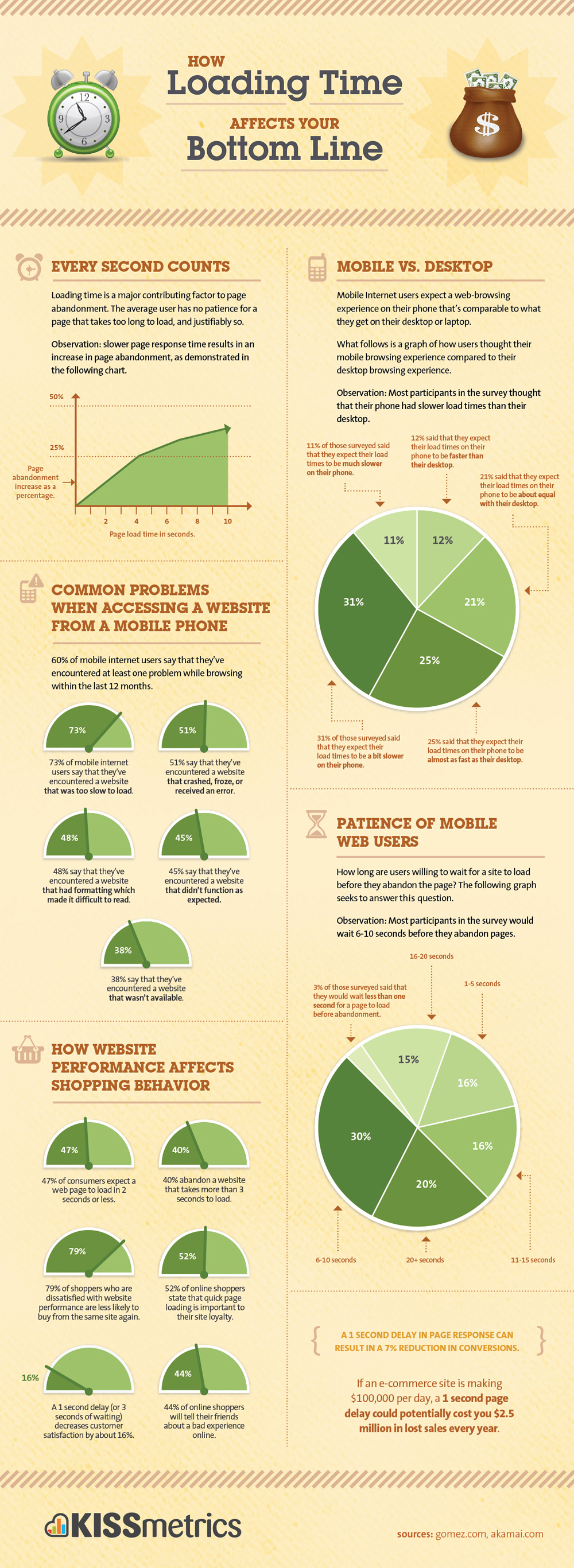Every year my marketing team has an offsite planning meeting where we lay out major goals and initiatives for the coming year. Last winter, site speed made it to the top of that list. The main push for making site speed a priority came from our SEO team. They felt strongly that improving our website’s page load times would improve our organic rankings. Besides the potential SEO benefit, it just makes sense to give your visitors the best possible experience.
We are halfway through the year, and we’ve made some measurable improvements in site speed. Our IT department has revamped code, optimized images, etc. to give our webpages a diet, and we’ve seen real improvements in site speed. During this process, something interesting happened that we hadn’t really planned for or expected (although looking back we really should have).
Decreasing Page Load Time Can Drastically Increase Conversions
Right about the time we started making some major improvements in speed, we got a huge boost in overall conversion rates on our site. We have tracked our overall website’s conversion rate for years, so when we experienced a 15%+ boost in overall conversion rates we were happily surprised.
Normally, when we get a huge lift in conversion rates we get a member of the team claiming credit. Not this time. We ended up concluding that market conditions and an overall shift in our search traffic from SEO to paid search was the primary driver for our big improvement in conversion rate. (I wish we were better about using something like Google Analytics Annotations to keep track of changes to the site).
After a closer analysis, it appears that site speed was definitely a huge contributor to our conversion rate improvements. Milliseconds matter. We found that our organic pages got the bulk of the benefit. Of course, this makes total sense. We’ve been testing PPC landing pages for years (without really considering site speed), and the winning pages just kept getting thinner and faster. Most of our landing pages have limited and simple navigation, no side bar, less content, etc.
Page Load Speed Is a Variable that Matters When Testing
Now I’m questioning all of those tests in which we didn’t consider page load times when picking winners. When we first started landing page testing, back when Offermatica first came on the scene, the main website was the champion and it lost every time to our smaller faster landing pages (where were you on that one Offermatica?). Maybe it was the design, our benefits message, unique value propositions, trust factors, calls to action, etc., but site speed had to be a major contributor and should have been considered.
If we can make this mistake, I’m guessing there are other folks out there doing the same thing. Next time you do a test on your website; make sure you can measure the page load time. If you need help making your website faster you might want to take a look at Google’s new page speed service.
I’m assuming there’s a point of diminishing returns when it comes to conversion rate benefit and site speed, but I don’t think we’ve hit it quite yet, so we will continue to make all of our web pages faster. Moving forward, page load time will be tracked on every recipe in every website test. The difference between 1.5 seconds and 2 seconds could trump your awesome new headline, image, or call to action.
While we're on the subject, check out KISSmetrics' infographic on loading time (click to enlarge).
About the Author

This post originated on the WordStream Blog. WordStream provides keyword tools for pay-per click (PPC) and search engine optimization (SEO) aiding in everything from keyword discovery to keyword grouping and organization.
Source: http://www.wordstream.com/blog/ws/2011/08/23/page-speed-conversion-rate-optimization
website development web hosting seo experts search engine marketing sem experts

No comments:
Post a Comment